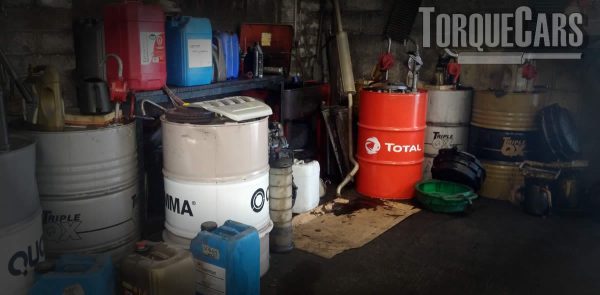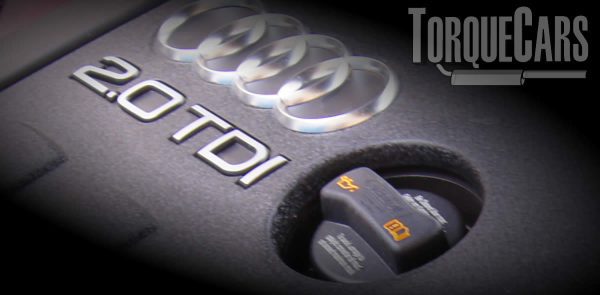Choosing Engine Oil For A Modified Car
"Which engine oil should you choose after you've tuned your car?"
Oil is essential for the proper operation of any car engine, but choosing the right engine oil for a modified vehicle is even more critical.
That's because, in the case of modified cars, the engine heats up more than in regular cars due to the extra effort that the engine has to put in to achieve and maintain such high speeds.
In such cases, the engine oil requirements change dramatically, necessitating the use of oil capable of withstanding such extreme heat.
Why Is Engine Oil Viscosity Important For Modified Cars?
The primary function of engine oil is to provide lubrication as well as cooling to the engine.
Viscosity is a major determining factor when choosing the engine oil for your modified car.
In the past, viscous engine oils were thought to be better performers when used in modified cars at high temperatures.
It should also be noted that the viscosity of oil decreases when heated. As a result, it was thought that using engine oil that was already too thin would be detrimental to the engine. Rather, your vehicle's engine may be damaged.
Check out our video introduction to choosing a performance engine oil and all you need to know and full guide for tuned cars.
Comparison Of Engine Oil For Normal & Modified Cars
It is worth highlighting that less viscous engine oil is preferred because of its greater ability to easily flow through engine parts and keep them lubricated.
However, modified vehicles require engine oils that can withstand viscosity loss even when heated.
However, it should be remembered that the purpose of the car's modification also determines which oil is best for the vehicle.
So, in the case of drag races where the vehicles don’t run for a long time, the engine oil does not get heated up to extreme conditions. This is why engine oil viscosity is not much of a problem in these vehicles.
But when we talk about the vehicles that have to race for long distances, the dynamics change altogether.
A Twist In The Tale
Now here is the twist in the story. While viscous oils did a better job on high-performance cars in the past, now they are considered relatively inappropriate for such cars mainly because of the advanced high-delivery oil pumps in modern vehicles.
So now it is believed that oils with higher viscosity waste power. Some experts also believe that these oils rather play a negative role in the heat transfer process and thus affect the prime reason behind their usage.
That’s why, nowadays, thinner synthetic oils are considered better for high-performance modified cars.
It is also to be noted that using a thinner oil allows an engine to produce more power but alongside this, the wear of the engine is also slighter higher. Although the power increase is negligible, still it is there.
As car enthusiasts adore even the minutest of power increment, they often choose to use thin engine oils for just this reason.
Thinner engine oils offer a lower amount of frictional loss which helps in increasing the vehicle’s output power.

Should You Stick To The Existing Oil Or Shift To A Thinner One?
As already discussed, the viscosity of oil plays a role in the car’s performance.
So, if you are looking for improved performance from your modified car, you can go for the thinner oils.
What Is ZDDP & What’s Its Use?
When choosing an engine oil for your relatively old modified car, one area that you should focus on is the presence of ZDDP or Zinc Dialkyldithophosphate in the engine oil.
ZDDP is a compound that forms a sacrificial layer in the vehicle’s components in cases of high temperature and pressure.
So, in case two metal parts get in touch with each other, instead of damaging and scrapping off each other’s surfaces, this sacrificial layer of ZDDP takes the hit and protects the engine parts.
Thus while choosing the engine oil for your modified performance car, you must go for an option that offers ZDDP for an added layer of protection. It is also to be noted that the higher the quantity of ZDDP in oil, the better it is.
You must also know that the Phosphate in ZDDP damages the catalytic converters so if you have gotten rid of the Catalytic Converter from your vehicle, using ZDDP is safe for your car.
However, the importance of ZDDP in modern engines is relatively lesser due to the better internal design of modern engines.
What Are Oil Numbers & What Do They Mean?
Let’s now discuss the numbers on oils and what they mean. So for motor vehicles, the following are some of the multi-grade oils that are presently in existence:
- 0W-16;
- 0W-20;
- 5W-20;
- 0W-30;
- 5W-30;
- 0W-40;
- 5W-40;
- 10W-30;
- 10W-40;
- 10W-50;
- 10W-60;
- 15W-40;
- 15W-50;
- 15W-60;
- 20W-50;
- 20W-60;

Know Your Engine Oil
Now, let’s see the meaning of these numbers and why knowing them is vital for all motorists that want to put the right oil in their modified cars.
So the first two digits before the dash represent the viscosity grade of the oil when it is cold, here W stands for winter. However, the number after the dash shows the oil’s viscosity grade when it is hot.
With this, you might think that the oil gets thicker when it is heated however this is not really the case.
Rather it means that a particular oil behaves like a thicker grade oil when it is heated and when cold, it behaves like a thinner grade oil.
What Is Required From An Engine Oil In A Highly Tuned Car?
Well, as already stated above, the main purpose of the engine oil regardless of which vehicle it is put in remains to lubricate the engine components and protect them from wear and tear.
However, besides this, keeping the engine of a tuned car cool is another major role played by the engine oil.
Oil with ZDDP protects the engine parts from scraping each other off and the oils with additives aid the engine in staying clean.
Another vital role played by engine oil in modified vehicles is the prevention of corrosion so if you feel the need to stop corrosion in your car’s engine, choosing the right oil can make a huge difference.
If your tuned vehicle has a relatively old engine, then you must choose viscous oil such as 20W-50.
Please Check out my YouTube channel, we're regularly adding new content...
PLEASE HELP: I NEED YOUR DONATIONS TO COVER THE COSTS OF RUNNING THIS SITE AND KEEP IT RUNNING. I do not charge you to access this website and it saves most TorqueCars readers $100's each year - but we are NON PROFIT and not even covering our costs. To keep us running PLEASE Donate here
If you liked this page please share it with your friends, drop a link to it in your favourite forum or use the bookmarking options to save it to your social media profile.
Feedback - What do You Think?
Please use our forums if you wish to ask a tuning question, and please note we do not sell parts or services, we are just an online magazine.
Help us improve, leave a suggestion or tip
Please watch this video and subscribe to my YouTube channel.

 Click to accept YouTube Cookies & Play.
Click to accept YouTube Cookies & Play.